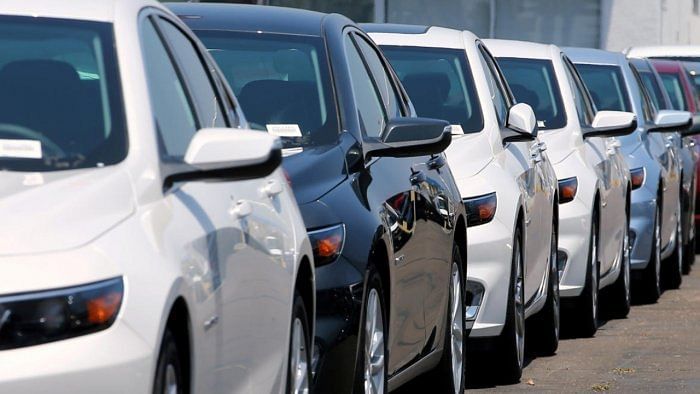
The surge in demand for passenger vehicles, particularly in November, may have pepped up the automotive sector, feeding its aspirations for the new calendar, but analysts warn against pinning much hope in the present trend, raising doubts about its sustainability. Remarkably, though buoyant, the challenges ahead are not lost on the manufacturers.
Last month saw automobile retail sales reclaiming pre-pandemic glory in passenger vehicles, three-wheelers, tractors and commercial vehicles. Despite the industry being marred by global recessionary fears, the Russia-Ukraine conflict and supply-side constraints for a major part of 2022, the easing of Covid-19 infections early this year and better availability of semiconductor chips in the last few months boosted its chances of returning to pre-Covid-19 levels.
Yet, manufacturers remained wary of some existing headwinds to spill over from this year and expected some new challenges including global cues and rising input prices to surface in 2023. “The supply constraints have considerably improved month by month…however, the problem is not fully resolved, and it is still unclear when the situation will rectify entirely,” said Shashank Srivastava, Senior Executive Officer, Marketing & Sales, Maruti Suzuki India Limited.
He is not alone in his concerns. “Going forward, we will need to keep monitoring the impact of inflation, high commodity prices (including battery cells) and fuel (including CNG) on the overall demand,” said Shailesh Chandra, Managing Director of Tata Motors Passenger Vehicles Ltd and its e-mobility unit.
“There might be some challenges if there are disruptions in supply-chain like semiconductor chip shortage but, overall, we are positive for industry performance,” said Kunal Behl, Vice president, Sales and Marketing, Honda Cars India.
India’s automobile industry, which contributes 7.1% to the country’s GDP and 49% to its manufacturing sector, is often considered a barometer for the overall growth of the Indian economy.
However, industry observers point out that the problem will not be purely on the supply side. “We do not think this rosy situation will continue into 2023. Much of this year’s pent-up demand is anticipated to be fulfilled in the coming months,” said Ammar Master, Director, South Asia, LMC Automotive, a GlobalData Company
Contrary to Behl’s optimism, Master is convinced that the strong rebound in 2021 and 2022 will not sustain next year when both GDP growth and private consumption are expected to slow down. He argued that macroeconomic indicators like high inflation and interest rates would continue to undermine the industry and consumer demand.
EY India partner, Som Kapoor agreed that since the pent-up demand of this year would have probably got serviced in the next year, inflation could present small amounts of headwinds to the industry. “We will have to keep an eye on inflation, geo-political situation and supply-chain, especially with what’s going on in China the imports could get disrupted,” he said.
His word of caution, however, comes with a silver lining. “In 2023, Indian (passenger vehicle) industry will do better than the global industry and its volumes will be much ahead of that across the globe,” he added
Opportunities in 2023
As India strides towards its target to achieve net zero by 2070, its automakers said they were focused on bringing cleaner forms of mobility to the market and doubling down on the fast-growing SUV segment in the upcoming year.
“Honda’s global direction is to strive for realising carbon neutrality for all products and corporate activities and zero traffic collision fatalities by 2050,” said Behl.
He added that the Japanese parent firm Honda Motor Company committed to making two-thirds of its global sales from electrified vehicles by 2030.
Honda Cars India will also launch an SUV car during the festive year-end season next year.
India’s largest electric carmaker, Tatas have stated it would bring more options for its customers across fuel types.
“Going ahead, we will maintain our growth momentum and work towards further strengthening our product portfolio in ICE (internal-combustion engine) and EVs,” said Tata Motors’ Chandra.
Market leader Maruti Suzuki’s Srivastava said, “At Maruti Suzuki, we are persistent in democratising new technology for the masses, and we will launch our first electric car and first flex fuel vehicle by 2025.”